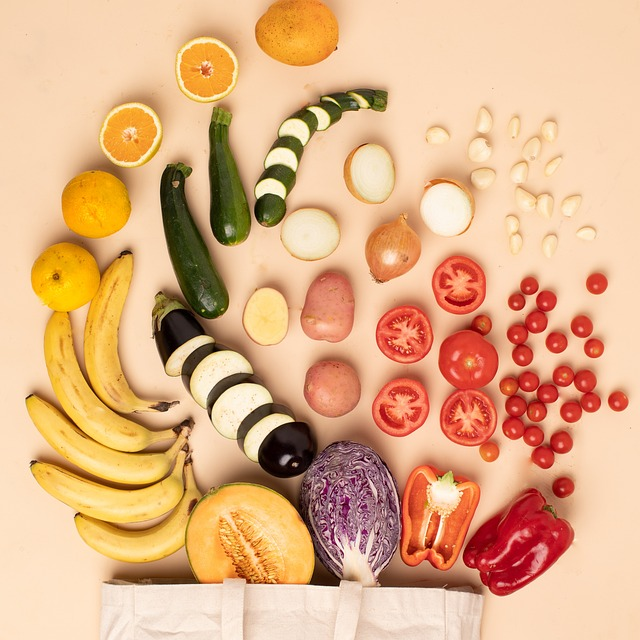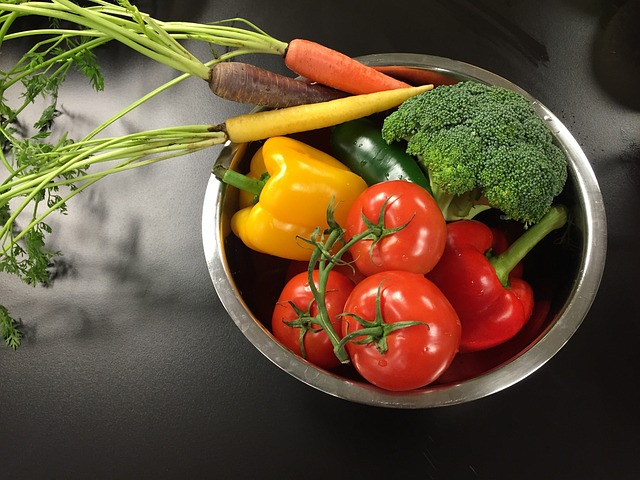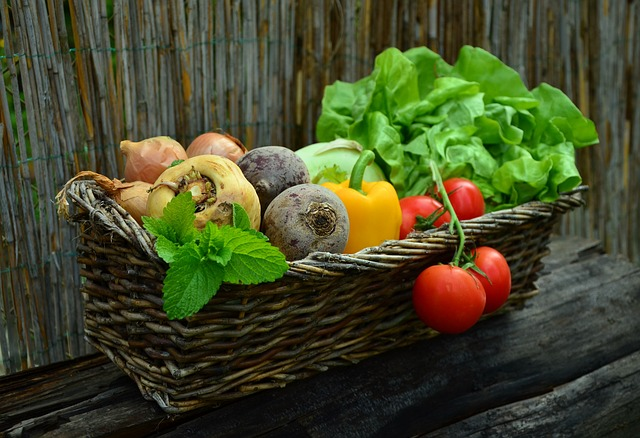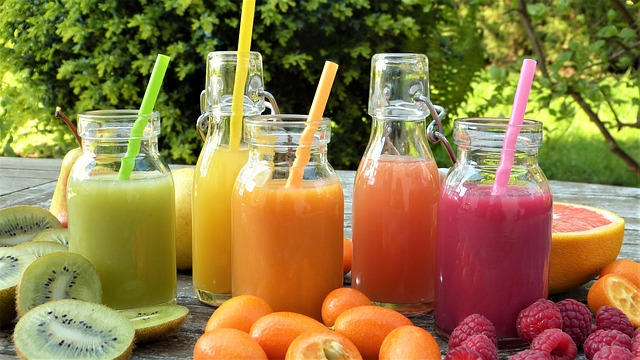
We all know that eating our vegetables is good for us, but did you know that there are actually specific compounds in plants that can have positive health effects? These dietary phytochemicals (pronounced "fight-oh-chemicals") can do everything from boosting our immune system to protecting our cells from damage. Read on to learn more about these amazing nutrients and how they can benefit your health!
Phytochemicals protect plants and in turn protect us
Who knew plants know how to fight back? Their phytochemicals are substances they produce to defend themselves against predators, pests, disease and other environmental stressors. It turns out that these chemicals can also do us a favor and give our own health a boost! Fruits and vegetables – colorfully packed with phytochemicals – are some of the primary sources of these noteworthy chemicals which have many health benefits.
Basically, phytochemicals are bioactive compounds that get produced in plants as a defense mechanism. These phytochemicals offer protection from diseases by primarily being responsible for the biological activity in humans. While not considered essential nutrients like vitamins, phytochemicals play a big role in keeping us healthy. With all sorts of phytochemicals out there, researchers are hard at work discovering even more specific phytochemicals and their specific roles in this beautiful symphony for human health!
Phytochemicals have a spectrum of health benefits

Phytochemicals are naturally occurring molecules found in plants that give them their vibrant colors. These molecules can be divided into four main groups: carotenoids, flavonoids, chlorophyll, and terpenoids. Carotenoids are responsible for the bright red, yellow, and orange hues seen in many fruits and vegetables. Flavonoids, on the other hand, give plants their blues, purples, and reds. Chlorophyll is what makes plants green and is responsible for photosynthesis. Lastly, terpenoids give plants their unique aromas, such as citrus and peppermint.
Each phytochemical has its own unique set of benefits for the body. Carotenoids are known to help protect against oxidative damage and are believed to be beneficial for vision, heart health, and even cancer prevention. Flavonoids are known to have anti-inflammatory and antioxidant properties, as well as being beneficial for cardiovascular health. Chlorophyll is beneficial for detoxification, as it helps to remove toxins from the body. Lastly, terpenoids are beneficial for the immune system, as they help to reduce inflammation.
The rainbow of colors in phytochemicals is an amazing thing to behold. Not only do these molecules provide health benefits, but they also make our food look, smell, and taste better. So next time you're enjoying a delicious, colorful salad, take a moment to appreciate the amazing phytochemicals that created the rainbow of colors on your plate.
Dietary phytochemicals have many health benefits, including potentially lowering your cancer risk and reducing inflammation
Did you know that phytochemicals, otherwise known as phytonutrients, can provide us with many health benefits? Most plant-based foods contain phytochemicals, and studies have found that they can reduce the risk of cancer, chronic diseases, and heart disease. Studies have shown that people who consume large amounts of phytochemicals have a lower risk of developing cancer, including breast cancer.
Carotenoids are a particularly powerful class of phytochemicals for lowering your cancer risk
For example, one type of phytochemical, carotenoids, has been linked to a reduced risk of developing lung, bladder, prostate, and breast cancers. Carrots are a great source of the carotenoid beta carotene, and tomatoes, including tomato products, are a great source of the carotenoid lycopene. Other sources of carotenoids include peppers, broccoli, brussels sprouts, cantaloupe, sweet potato, and basically any other orange, green, red, or yellow fruit or vegetable.

Other phytochemicals, such as flavonoids, have been associated with a decreased risk of developing certain types of cancer, including stomach, colorectal, and breast cancer. Research has also shown that phytochemicals may inhibit the growth of cancer cells and reduce the risk of cancer recurrence. The anti-cancer properties of phytochemicals are thought to be due to their ability to reduce inflammation, inhibit the growth of cancer cells, and reduce oxidative stress. So, by incorporating phytochemicals into your diet, you can reduce your cancer risk. Eating a diet rich in phytochemicals may also reduce your risk of developing breast cancer. Moreover, phytochemicals can also help to reduce inflammation that is associated with metabolic syndrome and various types of arthritis.
The impressive health benefits of phytochemicals make it a topic worth exploring further; scientists are continuing to research the effect phytochemical consumption has on different types of cancer and chronic diseases. Excitingly, we can already benefit from phytochemicals by incorporating them into our daily diets! We talked about more ways to help prevent cancer from the inside with our article on Beta-Glucan here.
Fruits, vegetables, herbs, and spices are chock full of phytochemicals

Who needs to worry about resorting to supplements for nutrients when plant-based foods such as whole grains, fresh fruits and veggies, green leafy vegetables, and other plant foods are around? From citrus fruit to green tea, dietary polyphenols to cruciferous veggies, cooked tomatoes to beta carotene, plant-based products are chock full of phytochemicals that are great for our health. We talked more about plant-based iron here!
Open up the cupboards in any plant enthusiast's kitchen and you'll find phytonutrients galore! Stock up on sweet potatoes for a hit of vitamins A and C or reach for the red wine if it's antioxidant properties you're after - no matter what your preference or needs may be, plant foods have got your back when it comes to getting enough phytochemicals into your diet.
If you want more phytochemicals is your diet, eat more plant foods!
If you want to make sure you're getting enough phytochemicals in your diet and give your health a boost, the key is to be mindful of what food sources phytochemicals come from and make sure that your dietary intake includes plenty of them.
Eating a balanced diet filled with phytochemical-rich plant foods will help maximize the benefits phytochemicals offer to reduce disease risk and protect overall health. Leafy green vegetables, berries, fruits like apples and citrus fruits, beans, nuts and seeds are all excellent sources of phytochemicals. Herbs and spices like cloves, oregano and cinnamon supply concentrated amounts of phytochemicals too. We talked about our favorite spices like basil in this article about nightshades.
Move beyond the produce aisle when it comes to phytochemical intake
If you want more phytochemicals you should opt for teas and coffee instead of soda, extra virgin olive oil in place of butter, or tahini spread instead of mayonnaise. You can even increase phytochemical concentration in your diet by adding superfood powders into smoothies or oatmeal.
Green tea and coffee are both rich in phytochemicals, including polyphenols, flavonoids, and catechins. These compounds have various health benefits, such as reducing inflammation, improving heart health, and helping to fight cancer. Green tea is particularly high in catechins, which may also help to boost metabolism and weight loss. Coffee, on the other hand, is rich in polyphenols, which may help to reduce the risk of chronic diseases like diabetes and Alzheimer's. With so many delicious ways to fill diets with health-promoting phytochemicals, there's no excuse not to enjoy a diet that's high in these compounds!
Smoothies and salads are great ways to get a variety of phytochemicals in one meal!

Why not kick-start your day and health routine with phytochemical-packed recipes? Try a smoothie made with dark leafy greens, citrus fruits, and maybe even some chia seeds. Or if you're feeling like tossing up a salad, pick any combination of leafy greens, vegetables, and bell peppers and top it off with some olive oil and vinegar – yum! You can also add fruits like kiwis or mangos, or any other citrus fruits for an extra phytochemical boost. The possibilities are endless, but the benefits are unmistakable. So, let's get phyto-popping!
Phytochemicals may not be a topic of conversation at your next dinner party, but they should be! These powerful plant-based compounds offer impressive health benefits, including cancer prevention and reduced inflammation. By increasing your intake of phytochemicals through diet and supplementation, you can enjoy these benefits while also boosting your overall health. Not sure where to start? Check out our recipes for a phytochemical-rich smoothie and salad. Then let us know how you plan on incorporating more phytochemicals into your diet in the comments below.
This article may contain affiliate links. As always, please consult with your medical professional any time you begin a new exercise routine, or supplement, or diet.
Comments
Post a Comment